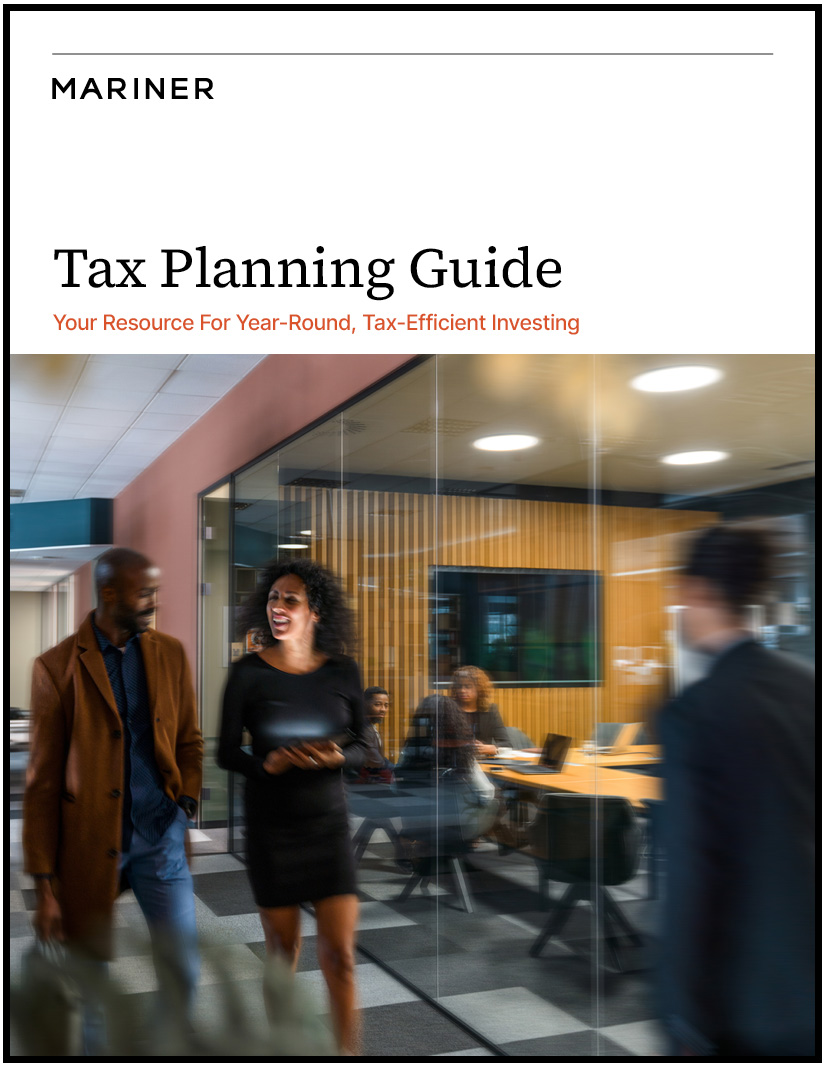Your Questions, Answered: Tax-Friendly States
On this week’s episode of Your Questions, Answered Alejandro Zayas discusses tax advantaged states, and answer the following question:
“What do I need to know about relocating to a tax-friendly state?”
Do you have questions you’d like answered? Email them to QA@marinerwealthadvisors.com, and we’ll provide answers.
Transcript:
Alejandro Zayas: As many people now know, the 2017 Tax Cuts and Jobs Act capped the deduction for state and local taxes on personal tax returns at $10,000. On top of that, the States have been increasing their personal income tax rates over the years, which is particularly costly to clients and people who live in a high tax States, such as New York, New Jersey, California, Oregon. So relocating to an income tax-free state can be a great idea for high-income earners or anyone really looking to keep more of their earnings each year and for retirees living on retirement savings.
So there are seven of them. They are Alaska, Florida, Nevada, South Dakota, Texas, Washington, and Wyoming. Also, New Hampshire and Tennessee, they do not have tax on earned income, your wages, but they do tax your interest and dividends from investments. That’s the main one. The key advantage is that you would save more of your hard-earned dollars, use it to build your wealth, pass it onto your family.
You can also increase your standard of living. If you can imagine, you know, a home that costs X amount of dollars in a high tax state, you could probably get a bigger home, increase your spending on that when you move. Also, when you’re in retirement savings, that means your savings will last longer once you’re in retirement and your social security will not be taxed at the state level. There is also, on the other hand, you have tax free states that you have higher sales and property taxes. So you have to really think about that. And we all, we always recommend partnering with an advisor to help you figure out the details.
Another item that you might want to consider is whether there is an estate or the dreaded best tax in the state you currently live in compared to where you be moving to. So that’s a really another one to keep your mind on. I want our audience to think about this because of the tax dollars you represent to your current state. Your state may challenge your change based on what they call “perceived lack of intent.” So keep in mind, you cannot simply pick up, declare “I live in Florida now” or “I live in Texas.” You actually have to document this move to your new domicile.
So there are several steps that you can take. And we actually have a whole checklist that we’re happy to share with our audience. And here are the most common. So you can obtain a driver’s license in your new state of domicile. Another one is you can register your cars, your boats, jet skis, any other vehicle in the new state. Another one is you could change the primary address for your credit cards and your utility bills and your insurance policies as well. You can also change your voter registration and vote in the new state that you’re moving to.
And I’ll leave you with this one. You should keep a diary or a lot of where you are, what days you spent in all the States. That way you can more easily support your change of domicile. And remember, you will need to show that you spend at least half the year or more specifically, 183 days for tax purposes in the new state.
Tax Guide: Your Resource for Year-Round Tax-Efficient Investing
Year-round planning with an advisor could help improve your overall wealth plan. Find out more by downloading our tax guide.



